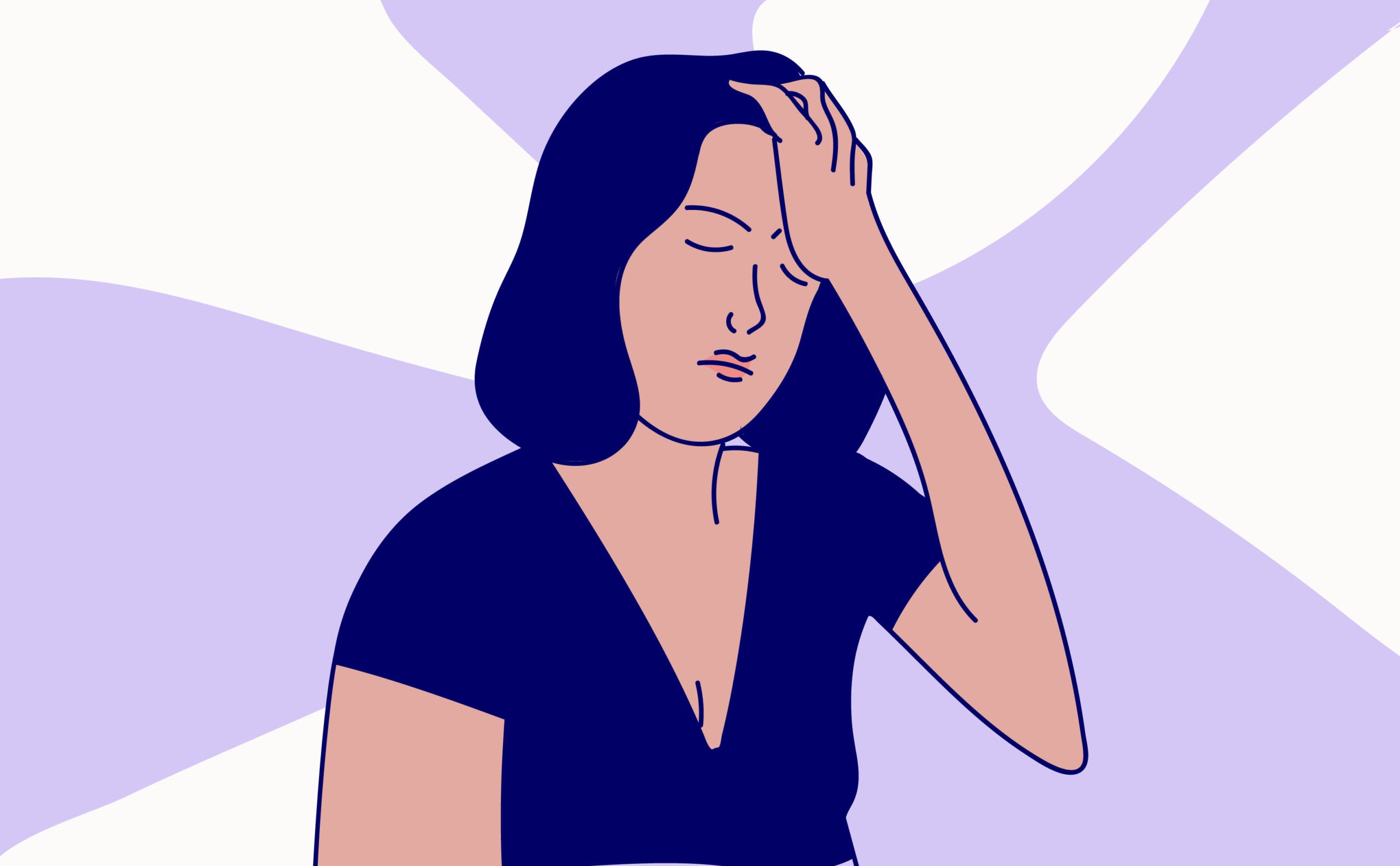We’re all about equipping you with the know-how to understand your symptoms, and we especially emphasize the specific, tangible ways to manage them. Our goal is to empower YOU to take charge of your menopause journey, starting today.
A quick note about product recommendations…Elektra Health is not paid to feature any products. We just like them and think you might too, though we can’t guarantee any results.
Nutrition & Diet
While there’s isn’t hard evidence around a specific diet to stop headaches and migraines, anecdotal evidence points to potential “trigger” foods to avoid, including alcohol (specifically red wine and beer), caffeine, aged cheeses, chocolate, cured meats, food preservatives (nitrates, nitrites, MSG, artificial sweeteners), smoked fish, and yeast extract.
Those suffering from headaches are also advised not to skip meals since prolonged hunger and low blood sugar levels can be a trigger. Instead, make time for smaller, more frequent meals.
Holistic Practices
For an integrative approach to headache management, it’s important to prioritize quality sleep, which can be challenging during perimenopause. Our founding physician, Dr. Anna Barbieri, MD has some favorite daily habits to foster better sleep. Here are just a few to get started — to learn more, check out Elektra’s guide to managing sleep during menopause.
Schedule wisely
Carve out time for a wind-down routine. Take a warm bath, sip a cup of herbal tea, and take a few minutes to journal. Doing so will lower sympathetic activation (your body’s fight or flight system).
Stick to a consistent bedtime
If the schedule of when we are asleep and awake varies considerably, it can throw off the physiological part of our bodies, which thrives off a 24-hour circadian rhythm. If you can, try and make this work on the weekends, too.
Keep it cool
Right around bedtime, your body temperature drops 1-2 degrees, which signals to your internal clock that it’s time to hit the hay. In doctor-speak, this is what’s called “thermoregulation.” We recommend keeping your bedroom at a cool 60 – 67°F and, if that’s not enough, trying cooling sheets made with bamboo or a cooling mattress pad or blanket for your bed.
Exercise
Regular exercise is a go-to preventive strategy to help reduce the frequency and severity of migraine and tension-type headaches — in fact, research suggests it may be *just* as effective as using prescription medication. One study in particular found that those who performed aerobic exercise for 40 minutes at least three times per week had a similar reduction in migraine frequency as those who took topiramate (a common medication for migraines).
Supplements & Over-the-Counter Solutions
Supplements and over-the-counter solutions can be effective in managing headaches and migraines…if you choose wisely. We recommend consulting with your healthcare provider first to ensure you’re using something with optimal efficacy and safety (i.e. backed by clinical research) or consulting with Elektra’s providers. Here’s a quick primer from our team on how to go about selecting high-quality supplements.
Magnesium
This mineral, which is found on earth and in the human body, plays a role in over 300 biochemical reactions. It’s found naturally in foods like leafy greens, salmon, nuts, seeds, and legumes, but many Americans don’t get enough through dietary sources. One study found that those who took magnesium for 12 weeks had 42% fewer migraine attacks, compared with 16% fewer attaches for the placebo group.
Note: The most common side effect is upset stomach, which can be prevented by taking magnesium glycinate or magnesium L-threonate.
Riboflavin
Riboflavin, aka Vitamin B2, is one of eight B vitamins that helps metabolize fats and proteins in order to convert food into energy. In a small study conducted by the European Journal of Neurology, participants who took 400 mg of riboflavin daily for six months reported half the number of monthly headaches, from four to two.
Prescription
Hormonal
Hormone replacement therapy (HRT) can be effective in maintaining a stable estrogen environment and, as a result, preventing hormonal fluctuations that can trigger headaches and migraines. So for some women, this may be an option to manage hormonal migraines. But, as we’ve said many times before (and will continue saying), HRT is a decision that should only be made by you and your doctors — in this case, a gynecologist AND a neurologist. It’s imperative to take into account individual needs and specific health history.
Here’s what you need to know about the two main types of HRT:
Oral HRT
As the name suggests, oral products are taken by mouth in tablet or capsule form. Women experiencing migraines with aura (which occurs when migraines are associated with flashes of light, blind spots, and other vision changes) are at an increased risk of stroke with this form of hormone therapy. Just like with oral estrogen, estrogen-containing birth control pills are also contraindicated for women with migraine with aura. The exception would be strictly menstrual migraines which can be treated with oral hormones.
Transdermal HRT
Transdermal HRT is available as a patch or gel applied directly to the skin. If HRT is considered as part of your migraine treatment plan, then transdermal estrogen is typically the better option as it does not impact cardiovascular and stroke risk.
Important note: When it comes to migraines, hormone replacement therapy does not work for everyone. Certain women experience no changes at all, while others may experience worsening headaches as a side effect of HRT. If this occurs, providers usually lower the estrogen dose, stop it altogether, or swap it out for a different form of estrogen. Transdermal estrogen is least likely to trigger headaches as it provides a steady supply of the hormone.
READ MORE: The Elektra Guide To Hormone Replacement Therapy In Menopause
Non-Hormonal
Non-hormonal treatments have been found effective in the prevention and treatment of migraines. The most common include:
- Botox: FDA-approved for those experiencing chronic migraines 15+ days per month
- Fluoxetine & Venlafaxine: two antidepressants commonly used to help with vasomotor symptoms (i.e. hot flashes/hot flushes & night sweats) that also combat migraines by targeting specific pathways in the brain
- Triptan: a group of medications used to ease the symptoms of cluster headaches or migraines
We’re always keeping an eye out on emerging research and the latest clinical studies. Subscribe to our weekly Elektra Digest for the latest, science-based info direct to your inbox. Something work well for you that’s not listed here? We want to hear it! Shoot us a note at [email protected]. (We’re human, promise.)
Pro tip #2
For more information on what to eat and avoid, refer to this handy guide put together by The Association of Migraine Disorders, which breaks down migraine-safe foods by category (from meat, dairy, fruits and veggies down to cereal and salad dressing!).
Pro tip #3
If you decide it’s time to see a doctor about your migraines, it’s important to come prepared with a headache “diary.” Use this to track when you are getting migraines (time of day), severity, triggers, what helped/didn’t help, and whether there’s any relation to your menstrual cycle. Here’s an example to get started.
Disclaimer: This information is for general educational purposes, and should not be used as a substitute for medical advice, diagnosis, or treatment of any health condition or problem.
As with anything you put into your body, taking dietary supplements can also involve health risks. You should consult a medical professional before taking supplements and inform your doctor about any supplements, as well as any medications you already take, since there may be interactions.
Helpful? Share the wealth!
Share with a friend who deserves evidence-based expertise &
solutions.





